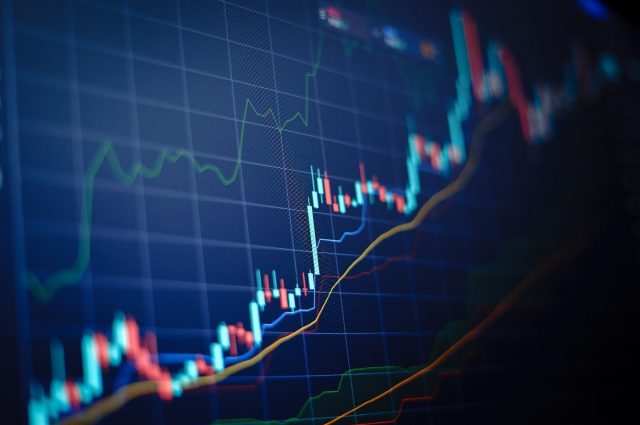The global stock market is intricately linked to geopolitical events, with fluctuations in response to wars, elections, trade deals, and other significant political shifts. Investors often navigate volatile market conditions due to these events, which can disrupt economies and investor confidence. Pablo Salame thoroughly understands the impact of geopolitical events on the stock market, as well as how preparing for such disruptions is crucial for minimizing risk and maintaining long-term financial stability.
How Geopolitical Events Affect the Stock Market
Geopolitical events influence market behavior in both direct and indirect ways. The most significant events affecting the stock market include wars, national elections, international trade agreements, and sanctions. Pablo Salame takes a closer look at how these events can cause ripples in the financial world:
1. Wars and Conflicts
Wars and armed conflicts are perhaps the most disruptive geopolitical events. When tensions escalate into violence or military engagements, markets often respond with heightened volatility. For instance, the stock market may experience a sharp decline in reaction to uncertainty about the future of the global economy. Pablo Salame explains that investors tend to pull back from riskier assets like equities and instead seek safe-haven investments such as gold, U.S. Treasury bonds, or currencies like the Swiss franc.
In addition to immediate drops in market indices, wars can lead to long-term consequences for affected industries. Sectors such as defense, energy, and commodities often see significant gains during conflict due to increased government spending and resource demand. On the other hand, industries like tourism, travel, and luxury goods may experience substantial losses.
2. Elections and Political Transitions
National elections bring uncertainty to the stock market as investors anticipate potential fiscal policy, regulations, and leadership changes. In particular, elections in major economies like the United States, China, and European Union countries tend to have wide-reaching impacts on global markets. For example, stock markets may rally or fall based on investor expectations of the winning candidate’s economic policies. In the U.S., Democratic and Republican platforms often emphasize different approaches to taxation, government spending, and regulation, all of which affect market sentiment.
The 2016 U.S. presidential election saw significant market volatility, with the S&P 500 initially plummeting on the news of Donald Trump’s victory, only to rally as investors anticipated pro-business policies. Political uncertainty during elections can cause short-term fluctuations, but the long-term effects depend on the incoming administration’s policies. Investors can mitigate some of this uncertainty by analyzing the potential impact of the candidates’ platforms on various sectors.
3. Trade Deals and Sanctions
Trade agreements and international sanctions are major geopolitical events that significantly influence stock markets. Trade deals like the Trans-Pacific Partnership (TPP) or the U.S.-Mexico-Canada Agreement (USMCA) create new opportunities for industries to expand and may boost investor confidence by promoting economic growth. Conversely, the breakdown of trade agreements or the imposition of tariffs can lead to increased costs, supply chain disruptions, and market instability. A notable example is the U.S.-China trade war, which began in 2018. As tariffs were imposed on goods traded between the two largest economies in the world, markets reacted with sharp declines, especially in sectors that rely heavily on global supply chains, such as technology and manufacturing. Companies like Apple and Boeing saw their stock prices fluctuate as investors feared the impact of rising costs and reduced demand.
Similarly, economic sanctions imposed on countries like Iran and Russia have affected global energy markets, as these countries are key exporters of oil and natural gas. Sanctions reduce the availability of these commodities, pushing prices higher and causing market volatility. Investors in energy sectors need to remain vigilant about geopolitical tensions that could lead to supply shocks.
How Investors Can Minimize Risk
While geopolitical events are often unpredictable, investors can adopt strategies to minimize risk and protect their portfolios from sharp market swings. Pablo Salame shares several ways to prepare:
- Diversification
One of the most effective ways to mitigate risk from geopolitical events is through diversification. By spreading investments across a variety of asset classes, sectors, and geographical regions, investors reduce their exposure to any single event that might disrupt a particular market.
For instance, if an investor’s portfolio is heavily weighted in U.S. stocks, an election or political shift in the U.S. could cause significant losses. Diversifying into international markets, bonds, real estate, or commodities can help smooth out the impact of U.S.-specific political events.
- Safe-Haven Assets
Safe-haven assets are financial instruments that tend to retain or increase in value during times of uncertainty. Examples include gold, U.S. Treasury bonds, and the Japanese yen. Pablo Salame explains that by allocating a portion of a portfolio to these assets, investors can protect themselves from the sharp declines that often accompany geopolitical disruptions.
During the COVID-19 pandemic and associated geopolitical unrest, gold prices surged as investors sought stability in the face of market volatility. U.S. Treasury bonds, which are backed by the federal government, also experienced a rise in demand as they are considered one of the safest investments in the world.
- Hedging with Options
This is another strategy investors can use to protect their portfolios during times of geopolitical instability. By purchasing put options, investors have the right to sell their holdings at a predetermined price, limiting potential losses if markets decline sharply.
For example, if an investor is concerned about the outcome of a major election that could negatively impact the stock market, purchasing put options on major indices like the S&P 500 could provide downside protection. While options require an upfront cost (the premium), they can serve as an effective tool for risk management in uncertain times.
- Stay Informed and React Appropriately
Geopolitical events can unfold quickly, and market reactions are often swift. Investors should stay informed by following news from reliable sources and assessing how specific events might impact their portfolios. Regularly reviewing asset allocation and adjusting investments as conditions change can help minimize losses.
Long-term investors, in particular, should avoid making impulsive decisions based on short-term market fluctuations. Instead, focus on fundamentals and maintain a disciplined approach to investing, understanding that market volatility is often temporary.
Geopolitical events are an inevitable part of the global economic landscape, and their impact on the stock market can be profound. Pablo Salame emphasizes that investors can prepare for uncertainty by understanding how events like wars, elections, and trade deals influence markets. Diversification, safe-haven assets, hedging, and staying informed are essential strategies for mitigating risk and navigating the volatile waters of geopolitics.
Investing in a world where geopolitical tensions and economic disruptions are always active requires a long-term perspective, sound strategy, and the ability to adapt as events unfold. With careful planning, investors can weather the storm and emerge with a stronger, more resilient portfolio.









